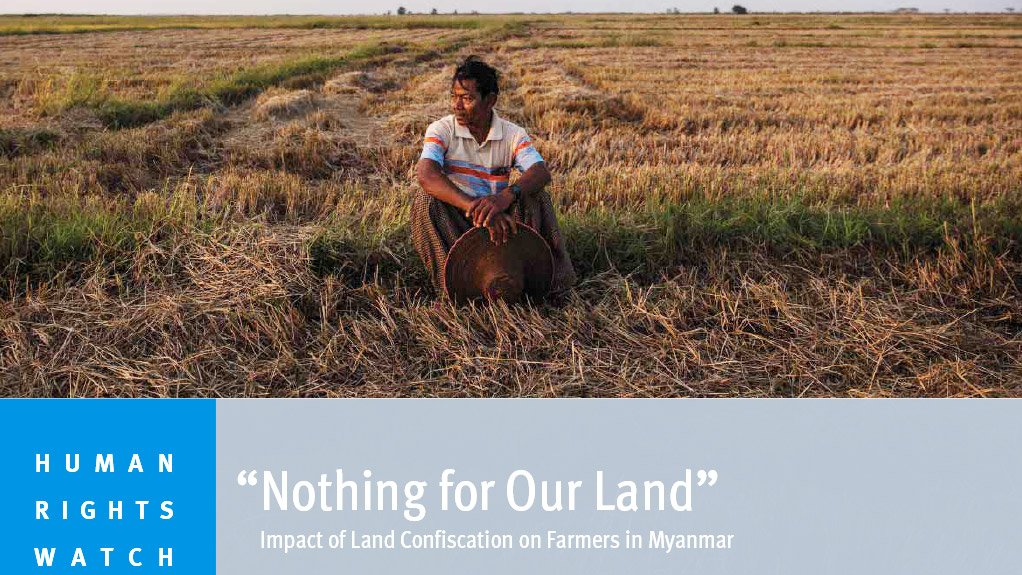- Impact of Land Confiscation on Farmers in Myanmar0.92 MB
Disputes over land remain one of the central challenges in Myanmar’s evolving reform process. Land confiscations and forced evictions were a major feature of decades of military rule and internal armed conflict. Small farmers bore the brunt as government officials, military commanders, and their cronies seized land for personal and institutional enrichment; authorities promoted development plans without regard for those affected; and the military and ethnic armed groups took advantage of fighting and displacement to grab vast swathes of territory.
Despite some protections under the law, government officials frequently confiscated land while providing limited or no notice and no compensation, often instantly depriving farmers of their only source of income and regular source of food. As a result, countless rural families struggled to pay for food, health care, and their children’s education. While the National League for Democracy (NLD) government, which took power in March 2016, has redoubled efforts to address the issue, large numbers of farmers have been left in the lurch, their livelihoods taken from them and their family’s future uncertain.
The total number of acres illegally confiscated in recent decades is unknown, but estimates are in the millions. In 2016, a government official, citing the findings of the Farmers Affairs Committee in the Upper House of Parliament, said “as many as 2 million acres of land across Burma could be considered ‘confiscated.’”
Myanmar’s population remains concentrated in rural areas where farming is the primary means of obtaining a livelihood. Land confiscations have had a disproportionate impact on rural farmers, most of whom own modest plots of land. As Myanmar’s larger reform process has led to increased media freedoms and less enforcement of laws restricting public protests, once-suppressed grievances have risen to the surface, leading to greater activism and widespread calls for land reform.
Recognizing the gravity of the problem, the Myanmar government has in recent years undertaken several initiatives to address land confiscations by investigating claims and recommending compensation or the return of land.
Report by the Human Rights Watch
EMAIL THIS ARTICLE SAVE THIS ARTICLE ARTICLE ENQUIRY
To subscribe email subscriptions@creamermedia.co.za or click here
To advertise email advertising@creamermedia.co.za or click here











